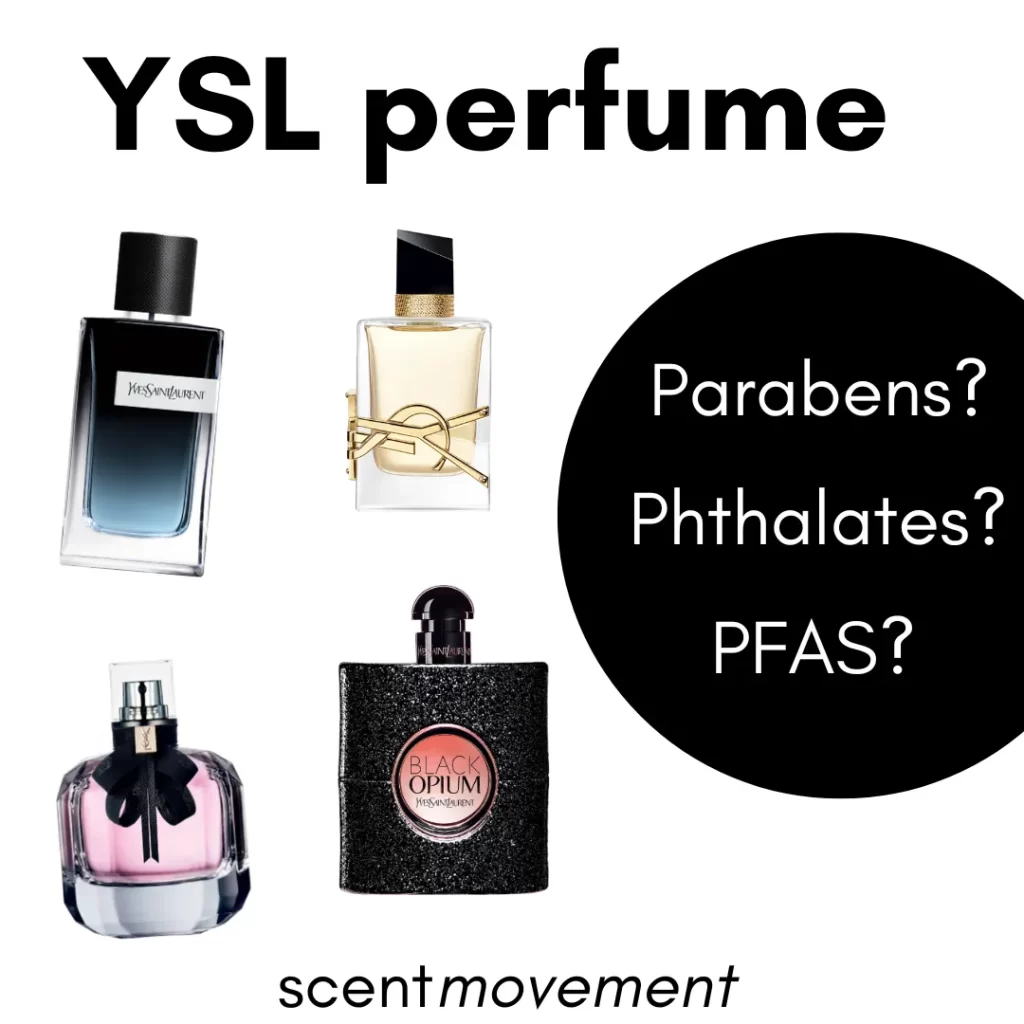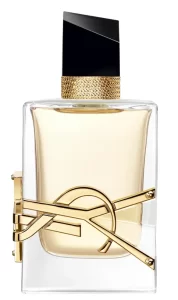
Yves Saint Laurent, or YSL for short, has a rich history in the world of perfume. In 1964, the brand introduced its first fragrance, Y, which was created by perfumer Jean Amic. It was followed by Rive Gauche in 1971, Opium in 1977, and Paris in 1983, among many others. The brand has a reputation for pushing boundaries and creating iconic scents that reflect the spirit of the times. In recent years, YSL has continued to innovate with the introduction of Black Opium in 2014, a modern twist on the classic Opium fragrance. With a history spanning decades, YSL remains one of the most influential perfume brands in the world today.
Here’s a list of the most popular YSL perfumes:
YSL has been in the perfume business for a while, so this is quite an extensive list.
If we had to gauge which YSL perfumes are the most popular, we would guess:

YSL is not transparent about what ingredients are in their perfumes.
Without a statement from a brand stating that their products are paraben-free, you have to assume they are not paraben-free.
This is the case with YSL – we have to assume all YSL perfumes do contain parabens.
Yes, we have to assume YSL perfumes contain phthalates since they are not transparent about the ingredients they use.
Yes, we have to assume YSL perfumes contain PFAS since they are not transparent about the ingredients they use.
One thing we find interesting is the fact that YSL seems to be aware of the concerns regarding the ingredients in their perfumes.
YSL has made formula changes to their SKINCARE. But why haven’t they done the same with their PERFUMES?
Here is a screenshot from the YSL website showing what YSL says about their skincare ingredients:
Most notable are the following:
“Since 2016, 100% of our new formulas are free of paraben, mineral oil, MIT, and MCIT.
Since 2018, 100% of our new formulas are also free of BHA, Benzophenone, formaldehyde, formaldehyde-releasing agents, phthalates, and sulfate SLS/SLES.“
So what can you do? Consumers hold real power to incite change in brands. Your voice and dollar are powerful.
We don’t recommend YSL perfumes. YSL is not transparent about what ingredients they use in their perfumes. Therefore, we have to assume YSL perfumes contain ingredients such as parabens, phthalates, and PFAS. These ingredients have concerning health implications (more on that here).
There are tons of perfumes on the market that don’t contain concerning ingredients – and these are the perfumes we use and recommend.
As consumers are becoming aware of the concerning ingredients in perfumes, many consumers are actively searching for better, safer perfumes. This is more than a passing trend. This is where the perfume industry is headed. Here at scentmovement, we’re here to promote this movement – browse around our site if you’re looking for perfume recommendations, reviews, or dupes!